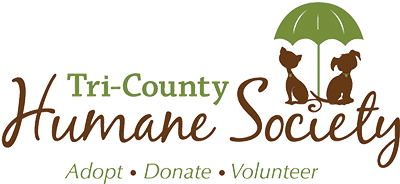COVID-19 (the coronavirus) and its effects have created unprecedented situations for all of us, in Central Minnesota and around the globe. We know Tri-County Humane Society’s friends are animal lovers (of course), so we wanted to offer some tips on how to prepare in case of an emergency.
We want to stress this is about preparedness, NOT about panicking. No matter what is going on in the world, it’s a good idea for your household to have an emergency plan – and since pets are family members, they must be accounted for in it.
Further studies are needed to understand if and how different animals can be affected by COVID-19, but the Centers for Disease Control reports that it does not have evidence that companion animals can spread the illness. People who have or are suspected of having COVID-19 can live with their pets but should limit close contact and be sure to wash hands before and after touching or feeding pets.
Staying healthy around your animals:
- Wash your hands after handling animals, their food, waste, or supplies.
- Practice good hygiene and always, always, always clean up after your pets.
- Contact your veterinarian if you have questions about your pet’s health.
- How to prepare for your pets in an emergency:
- At this time (4/9/2020) Minnesota is under a “stay at home” directive from the governor. For this reason, but also for general emergency preparedness, always have a good amount of your pet’s food/medication/related supplies (i.e. cat litter) on hand so if cannot make regular shopping trips you are well stocked. **TCHS’ Re-Tail Shoppe is open and we are willing to do curbside drop-off for purchases; call us for information at 320-252-0896**.
- Make sure you have a current copy of your pet’s medical/vet records close to you, as well as the pet’s collar, ID tags and microchip tag/microchip number. Ideally, your pet should always be up to date on his/her vaccines.
- Have a list of emergency numbers for your pet in your wallet at all times. Also make sure you always have a picture of your pet on you (in your phone or in your wallet) in case you are separated and you need to show ownership.
- Make sure you have a crate or kennel for your pet in case you need to transfer him/her quickly.
- Reach out to family and friends and make a plan in advance to see who would take care of your pet in case you are temporarily unable to do so. Work out all the details BEFORE such a situation should arise.
- Make sure your pet, besides its basic needs, also has a few comforting things to go with it (a favorite toy, blanket, treats, etc.)
- If you need financial help for emergency pet boarding, visit https://redrover.org/relief/emergency-boarding-grants.
- Stock a pet first aid kit – many include cotton bandage rolls, bandage tape and scissors, flea and tick prevention, and isopropyl alcohol.
Sources: CDC, ASCPA








